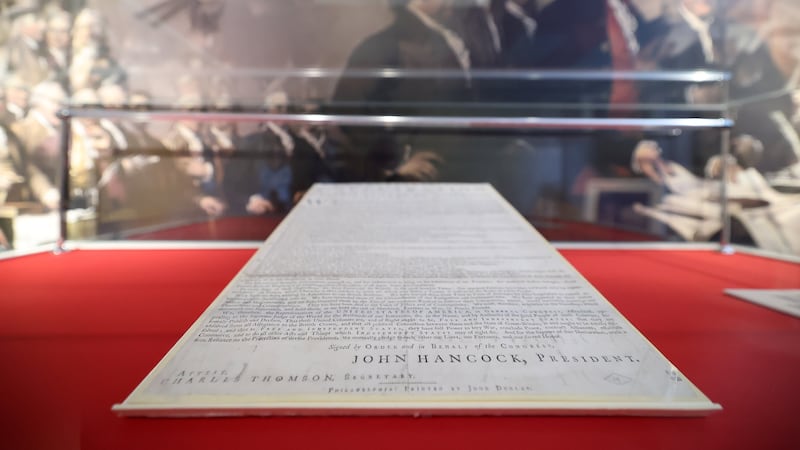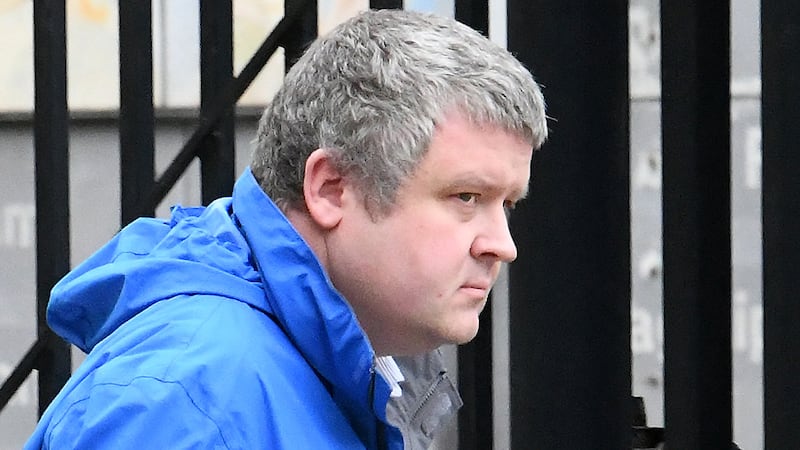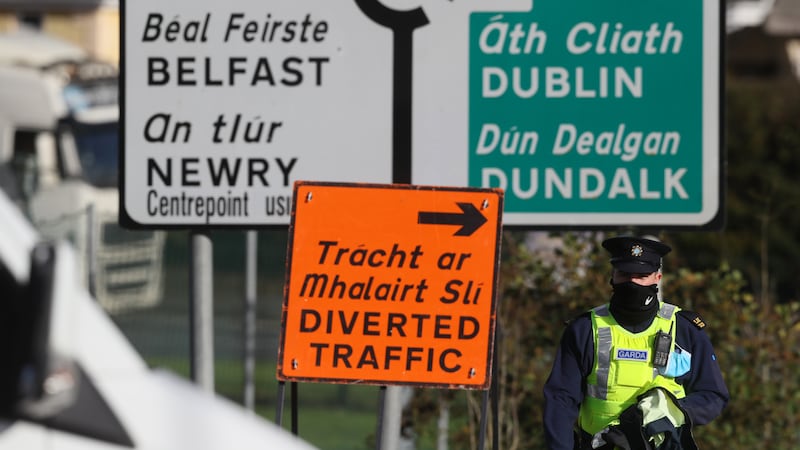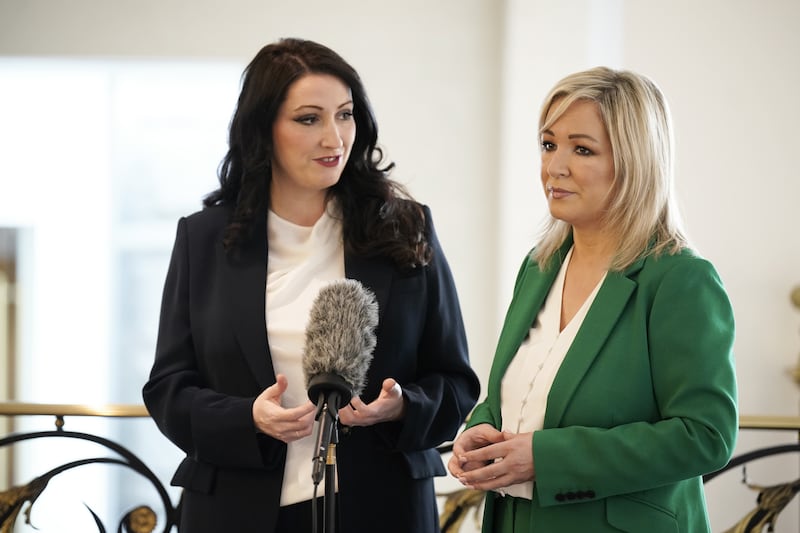A rare copy of the United States Declaration of Independence has been unveiled to the public in Northern Ireland for the first time.
Nearly 250 years after the historic document was signed in Philadelphia, the US special economic envoy for Northern Ireland, Joe Kennedy III, opened the new exhibition at the Public Records Office in Belfast.
On loan from the National Archives, copies of the declaration are known to sell for millions and security measures in place meant photographs could only be taken with special permission.
The exhibition is also celebrating the influence of Ulster-Scots culture on the United States, with the earliest copies – known as Dunlap Broadsides - printed by John Dunlap, an emigrant from Strabane.
Addressing the crowd in Belfast on Thursday, Mr Kennedy spoke of the deep links between Ireland and the United States and of how around 250,000 people from Ulster sailed to America in the 18th century “in search of a new life free from persecution.”
Praising the influence of Scotch-Irish on the formative years of the United States, he said: “These rugged, determined men and women rose to every challenge.”
“It’s a small island, but the contribution that your forefathers have made to the traditions and values of the United States is profound.”
On a large display outside the viewing area, July 4, 1776, was billed as a day "that changed the world" - when the congress of 'the thirteen colonies' published the declaration of independence.
The display read: "It carried just three names, two of whom were Ulster-Scots: Charles Thomson of Upperlands, the Secretary of Congress, and John Dunlap of Strabane, the printer."
It added: "The Declaration of Independence was not just a direct protest against the action of the 'King of Great Britain'.
" It was also the philosophical articulation of decades, even centuries, of resistance to arbitrary power, the oppression of liberty and tyrant monarchs."
Last week, the US President Joe Biden also acknowledged the influence of Ulster-Scots during his speech in Belfast.
"The family ties, the pride in those Ulster Scots immigrants, those Ulster Scots immigrants who helped found and build my country, they run very deep, very deep," he said.
"Men born in Ulster are among those who signed the Declaration of Independence in the United States pledging their lives, their fortunes and their sacred honour for freedom’s cause.
"The man who printed the revolutionary document was John Dunlap. He hailed from County Tyrone. And countless, countless others established new lives of opportunity across the Atlantic. Planting farms, founding communities, starting businesses, never forgetting their connection to this island."
He added: "Your history is our history. But even more importantly your future is America’s future."








